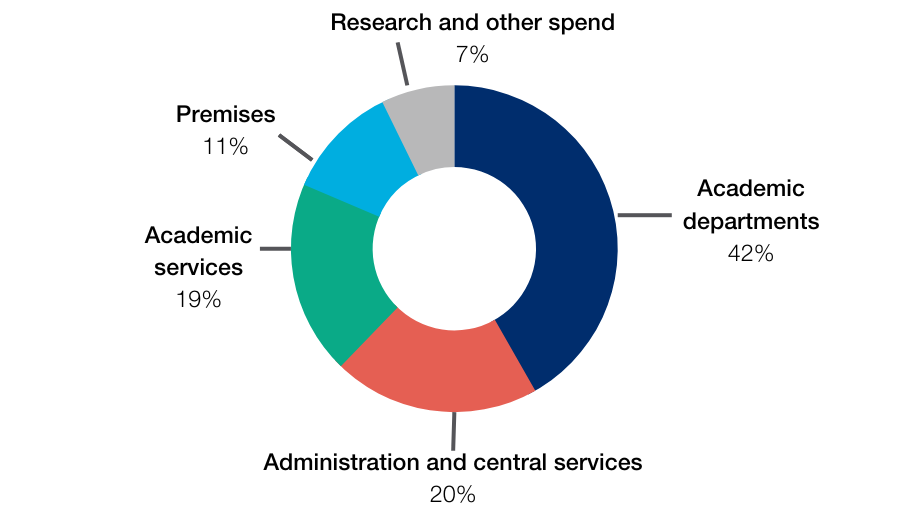Providing our students with the best possible experience is our highest priority. We use the money we receive from tuition fees to help provide all of our students with high-quality teaching, excellent facilities and a wide range of student support services.
How the University spends its tuition fee income
Here you'll find a short summary of how the University spends each student's tuition fee:
| Key | Costs | Amount | Percentage |
| Academic departments | 52,392 | 42% | |
| Administration and central services | 25,702 | 20% | |
| Academic services | 24,086 | 19% | |
| Premises | 14,206 | 11% | |
| Research and other spend | 9,125 | 7% | |
| 125,511 | 100% |

While teaching students is our primary concern, we are also focused on making a difference in and contributing to our local and national communities.
In 2021/22, the University spent £52.4 million (42%) on academic departments and £24.1 million (19%) on academic services, bursaries and scholarships. This is a total of 61% of the total expenditure invested to provide the best quality teaching and learning experience that we can for our students.
£25.7million (20%) was spent central administration and services. The central administration and services are things we must do to keep the University running successfully, such as managing our Student Services, Student Welfare Services, IT Services, Human Resources, and Finance teams. Over the past few years, the University has invested into helping students gain employability skills. Every student at the London Metropolitan University has access to career and employability advice. Our Career mentoring programmes and London Met’s Student Enterprise programme offers a range of help, support, advice and events for those interested in going into business for themselves, or simply learning more about the process of starting a successful business. This service helps students to prepare for building a successful career on completion of their degree as well as gaining work experience, build skills and discover strengths and ambitions.
A further £14.2 million (13%) was spent on our premises and residences. This includes maintenance and general improvements of our estate, energy to heat and cool our buildings, as well as money spent on ensuring our security and catering are as responsive as possible.
We spent a further £9 million (7%) on research grants and contracts and other minor University related expenditure.
More detailed information on how we manage our money can be found in our Annual Report and Accounts
